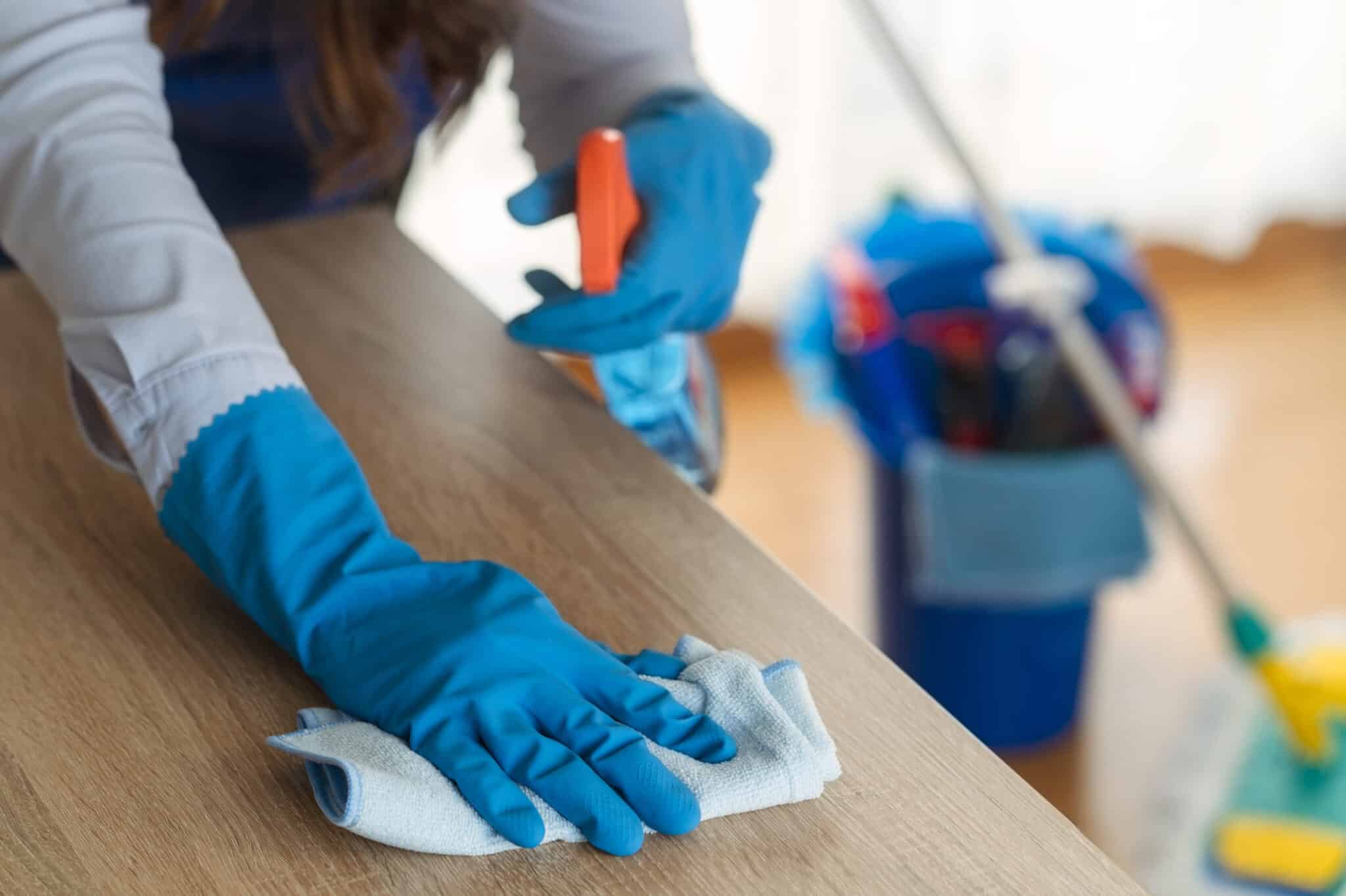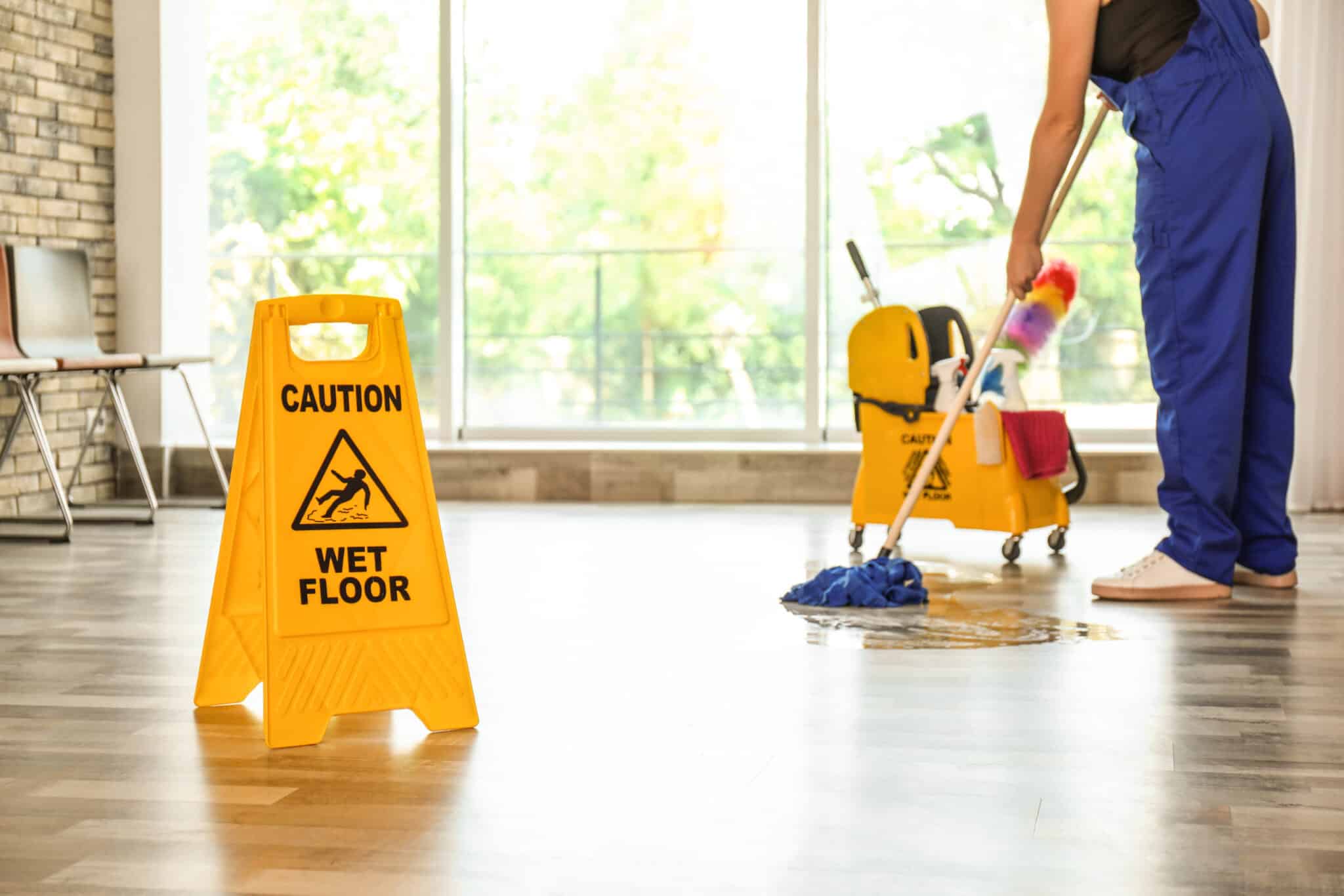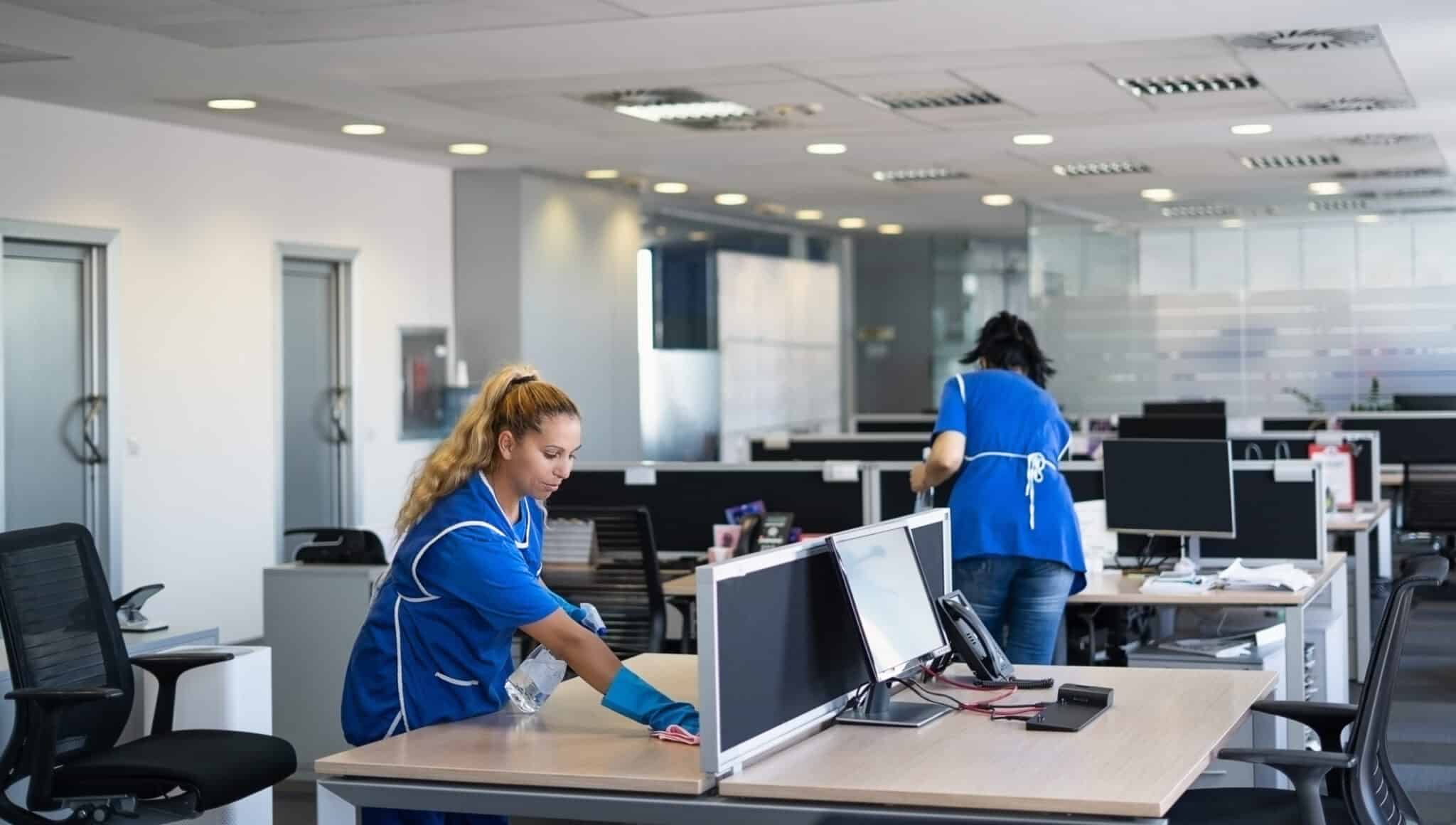What’s included in janitorial services? That is a question that many people ask when they are considering hiring a janitorial service for their business.
The answer, of course, depends on the specific company and what services they offer. However, there are some general things that you can expect to be included in most janitorial contracts.
In this article, we will discuss the typical services offered by janitorial companies and what you should expect to pay for them.
What Are Janitorial Services?
Janitorial services are professional cleaning services typically contracted to clean commercial or office buildings.
Janitorial companies usually have a staff of trained and experienced cleaners who use specialized equipment and cleaning products to clean large areas quickly and efficiently.
What’s the Difference Between Office Cleaning & Janitorial Services?
The two services are often confused, but there is a big difference between office cleaning and janitorial services. Office cleaning is typically done by one or two people and includes tasks such as sweeping, dusting, and mopping.
Janitorial services, on the other hand, are typically provided by a team of four or more people and include tasks such as:
- Trash removal
- Window washing
- Floor care
Janitorial services are also typically more comprehensive than office cleaning.
For example, while office cleaners might dust the top of a desk, janitors would also clean the desk’s drawers and underside. Similarly, while office cleaners might vacuum the floor once a week, janitors mop it daily.
The main difference between office cleaning and janitorial services is that janitors are responsible for a broader range of tasks, and they do them more frequently.
This means that if you need your entire office cleaned from top to bottom, you need to hire a janitorial service. An office cleaner will be sufficient if you only need the floors swept and the windows dusted.
If you’re planning on hiring janitorial services, here are some things to consider.
What’s Typically Included in Janitorial Services
The specific services included in a janitorial contract will vary depending on the company you hire.
However, most janitorial companies will offer some combination of the following:
- Sanitizing
- Washing windows
- Removing chemical spills
- Cleaning countertops and surfaces
- Emptying trash cans
- Mopping floors
- Carpet cleaning & vacuuming
- Dusting the office
- Restroom cleaning
- Ensuring health & safety compliance
Sanitizing

One of the most critical services provided by janitorial companies is sanitizing. Sanitizing refers to the process of disinfecting surfaces and areas to kill bacteria and other germs.
This is especially important in office or commercial settings where many people are close to one another. Sanitizing is a crucial step in defending your workplace against illness.
Janitorial companies will use a variety of methods to sanitize surfaces, including:
- Spraying surfaces with a disinfectant
- Wiping surfaces with a disinfectant
- Using an ultraviolet (UV) sanitizing wand
Washing Windows
Window washing is one of the most essential tasks regarding janitorial services. Not only does it make the building look clean and professional, but it also helps improve indoor air quality.
Window washers use a variety of techniques and tools to get the job done, including:
- Squeegees
- Buckets
- Ladders
- Cleaning solutions
The most important part of the job is making sure that all the windows are cleaned thoroughly and streak-free.
Removing Chemical Spills
Chemical spills can be hazardous events for janitors and building occupants. Janitors need to know how to remove these spills safely. Spills should be identified and contained as much as possible.
Once the spill has been identified, the janitor should take the following steps:
- Avoid contact with the spilled material
- Clean the area with a detergent and water solution
- Wear proper protective gear, including gloves, goggles, and a respirator
- Saturate the spill with an absorbent material, such as cat litter or sawdust
- Sweep up the absorbent material and dispose of it in a safe container
Cleaning Countertops and Surfaces
Cleaning countertops and surfaces is another standard service offered by janitorial companies.
This involves the following to all horizontal surfaces in an office or commercial setting:
- Dusting
- Wiping down
- Sanitizing
Horizontal surfaces include desks, tables, chairs, countertops, shelves, etc.
Emptying Trash Cans
One of the tasks often included in janitorial services is emptying trash cans. This can be a dirty and unpleasant job, but it is crucial to keep the trash cans clean and emptied regularly to prevent odors and pests from becoming a problem.
The janitor or cleaning crew will typically have a schedule for when each trash can needs to be emptied, and they will make sure to dispose of the trash properly.
Mopping Floors

Mopping floors is an essential part of janitorial services. The mopping process helps remove dirt, dust, and other debris from the floor. It also helps to disinfect the floor and remove any foul odors.
There are a variety of different mopping techniques that can be used, depending on the type of floor surface and the level of contamination.
Some standard mopping techniques include:
- Wet mopping
- Dry mopping
- Stripping
- Waxing
Carpet Cleaning & Vacuuming
Carpet cleaning and vacuuming are two essential tasks that are included in janitorial services.
Carpet cleaning helps to remove dirt, dust, and other allergens from the carpet fibers, while vacuuming helps to remove dust and debris from the floor.
Both of these tasks help to keep the carpets and floors clean and free of allergens, which can improve air quality and help to prevent asthma and other respiratory problems.
Dusting the Office
Dust accumulation can be a severe problem for businesses. Dust can cause allergies and respiratory problems, and it can also clog up equipment and affect productivity. That’s why having a regular dusting schedule for your office is essential.
A good janitorial service will include dusting as one of its regular tasks.
The janitor will visit your office regularly and clean all the surfaces that accumulate dust, including:
- Desks
- Shelves
- Windowsills
- Floors
They will also use special equipment to clean the ceilings and corners of the room.
Restroom Cleaning
Cleaning the restroom is one of the most critical and often overlooked tasks in janitorial services. Keeping restrooms clean and sanitary is essential to protect employees and customers from bacteria and viruses.
Janitors must disinfect all surfaces, including:
- Toilets
- Urinals
- Sinks
- Countertops
They must also empty trash cans and replace toilet paper and paper towel dispensers.
Ensuring Health & Safety Compliance
One of the most critical aspects of janitorial services is ensuring health and safety compliance.
This includes implementing best practices for cleaning and disinfecting surfaces, as well as using the appropriate Personal Protective Equipment (PPE) when necessary.
It’s also important to keep a safe work environment by implementing clear safety protocols and training employees on how to safely work with chemicals and equipment.
Did We Miss Anything?
Overall, are a variety of different janitorial services that businesses can choose from, depending on their specific needs.
What other tasks do you think should be included in janitorial services? Let us know in the comments below!
Frequently Asked Questions
The cost for janitorial services can vary depending on the size of the space, the number of hours needed per week, and the specific services required. Typically, the cost includes regular cleaning of all common areas, trash removal, and occasional deep cleaning.
Janitorial services are typically more intensive and include tasks such as floor care, window cleaning, and trash removal. Housekeeping services are less intensive and may include tasks such as dusting, vacuuming, and making beds.
There are many benefits to hiring a janitorial service, including improved air quality, reduced allergens, and increased productivity. Janitorial services can also help to prevent the spread of disease by disinfecting surfaces and using the appropriate Personal Protective Equipment (PPE).


